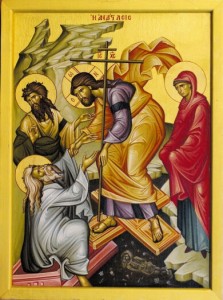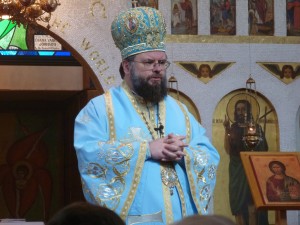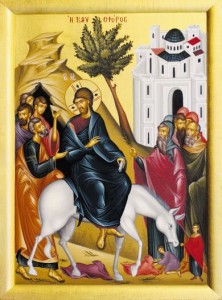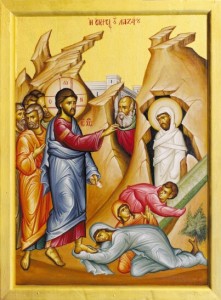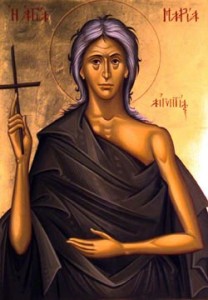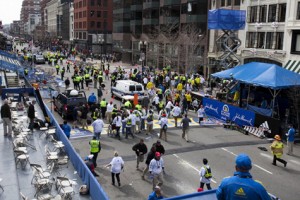
Saturday, April 27, 2013
The Honorable John Kerry
United States Secretary of State
Dear Secretary Kerry,
We, the Members of the Assembly of Canonical Orthodox Bishops of North and Central America, kindly bring to your attention the urgent and very serious plight of the Greek Orthodox and Syriac Orthodox Archbishops of Aleppo, Paul Yazigi and Yohanna Ibrahim, who were abducted this past week by “a terrorist group” in the village of Kfar Dael as they were carrying out humanitarian work.
Since the outbreak of the civil war in Syria, religious minorities have not only come under increasing attacks by Islamic fundamentalist rebels, but also have been caught in the crossfire of the opposing factions. As you well know, on April 22, 2013, the United States Commission on International Religious Freedom released a report entitled Protecting and Promoting Religious Freedom in Syria. Religious minorities, including the Christian population, have been targeted for extinction in an attempt to create an Islamic State in Syria and to impose Sharia Law as the law of the land. To that end, Christian clerics have been kidnapped and murdered, even as they tried to bring aid and comfort to their people in this war torn country, while others are still missing, taken captive by rebel forces.
We fervently beseech you to immediately call for and actively work towards the immediate release of Archbishops Paul Yazigi and Yohanna Ibrahim, especially as Orthodox Christians around the globe are preparing to celebrate the Resurrection of OurLord and Savior Jesus Christ on May 5th. We would further hope that the United States government, which has always been a champion of civil rights and religious freedom and defends the dignity and safety of every individual, would exert pressure on all parties in Syria to stop the killing of innocent people and restore freedom of religion and respect for all religious minorities.
We are indebted to you and others within the administration for your tireless efforts. As Orthodox Christians, the most appropriate way to express this appreciation is to continue to pray for all our civil authorities. May the Lord bless and keep you: The Lord make His face to shine upon you, and be gracious to you: The Lord lift up His countenance upon you, and give you peace. (OT Book of Numbers 6:24-26).
Archbishop Demetrios, Chairman of the Assembly of Bishops
Greek Orthodox Archdiocese of America
Metropolitan Philip, 1st Vice Chairman of the Assembly of Bishops
Antiochian Orthodox Christian Archdiocese of New York and all North America
Archbishop Justinian, 2nd Vice Chairman of the Assembly of Bishops
Russian Orthodox Church in the USA
Bishop Basil, Secretary of the Assembly of Bishops
Antiochian Orthodox Christian Diocese of Wichita and Mid-America
Metropolitan Antony, Treasurer of the Assembly of Bishops
Ukrainian Orthodox Church of the USA Eastern Eparchy
Metropolitan Iakovos
Greek Orthodox Metropolis of Chicago
Metropolitan Methodios
Greek Orthodox Metropolis of Boston
Metropolitan Isaiah
Greek Orthodox Metropolis of Denver
Metropolitan Alexios
Greek Orthodox Metropolis of Atlanta
Metropolitan Nicholas
Greek Orthodox Metropolis of Detroit
Metropolitan Savas
Greek Orthodox Metropolis of Pittsburgh
Metropolitan Gerasimos
Greek Orthodox Metropolis of San Francisco
Metropolitan Evangelos
Greek Orthodox Metropolis of New Jersey
Bishop Andonios
Greek Orthodox Archdiocese of America
Bishop Demetrios
Greek Orthodox Metropolis of Chicago
Bishop Sevastianos
Greek Orthodox Archdiocese of America
Metropolitan Athenagoras
Holy Metropolis of Mexico
Metropolitan Nikitas
Patriarch Athenagoras Orthodox Institute in Berkley, CA
Bishop Gregory
American Carpatho-Russian Orthodox Diocese of the USA
Bishop Daniel
Ukrainian Orthodox Church of the USA Western Eparchy
Bishop Ilia
Albanian Orthodox Diocese
Archbishop Joseph
Antiochian Orthodox Christian Diocese of Los Angeles and the West
Bishop Antoun
Antiochian Orthodox Christian Diocese of Miami and the Southeast
Bishop Thomas
Antiochian Orthodox Christian Diocese of Charleston, Oakland and the Mid-Atlantic
Bishop Alexander
Antiochian Orthodox Christian Diocese of Ottawa, Eastern Canada & Upstate New York
Bishop John
Antiochian Orthodox Christian Diocese of Worcester and New England
Bishop Anthony
Antiochian Orthodox Christian Diocese of Toledo and the Midwest
Bishop Nicholas
Antiochian Orthodox Christian Archdiocese, Bishop of Brooklyn and Assistant to the Metropolitan
Metropolitan Hilarion
Russian Orthodox Church Outside of Russia, Eastern America and New York Diocese
Archbishop Alypy
Russian Orthodox Church Outside of Russia, Chicago and Mid-America Diocese
Archbishop Kyrill
Russian Orthodox Church Outside of Russia, San Francisco and Western America Diocese
Bishop Peter
Russian Orthodox Church Outside of Russia, Administrator of Chicago and Mid-America
Diocese
Bishop Theodosy
Russian Orthodox Church Outside of Russia, Vicar – San Francisco and Western America Diocese
Bishop George
Russian Orthodox Church Outside of Russia, Vicar – Eastern America Diocese
Bishop Jerome
Russian Orthodox Church Outside of Russia
Bishop John
Russian Orthodox Church Outside of Russia, Bishop-in-Charge of Old Ritualist Parishes
Bishop Longin
Serbian Orthodox Church, Chicago and Mid-America Diocese
Bishop Mitrophan
Serbian Orthodox Church, Eastern American Diocese
Bishop Maxim
Serbian Orthodox Church, Western American Diocese
Archbishop Nicolae
Romanian Orthodox Archdiocese in the Americas
Bishop Ioan Casian
Romanian Orthodox Archdiocese in the Americas
Metropolitan Joseph
Bulgarian Eastern Orthodox Church of the USA, Canada, and Australia
Bishop Daniil
Bulgarian Eastern Orthodox Church of the USA, Canada, and Australia
Metropolitan Dimitri
Georgian Orthodox Church, Dioceses of Batumi & Lazeti and America
Metropolitan Tikhon
Orthodox Church in America, Archdiocese of Washington, D.C.
Archbishop Nathaniel
Orthodox Church in America, Romanian Orthodox Episcopate
Archbishop Nikon
Orthodox Church in America, Diocese of New England and Albanian Archdiocese
Archbishop Benjamin
Orthodox Church in America, Diocese of San Francisco and the West
Bishop Melchisedek
Orthodox Church in America, Diocese of Pittsburgh and Western Pennsylvania
Bishop Michael
Orthodox Church in America, Diocese of New York and New Jersey
Bishop Alexander
Orthodox Church in America, Bulgarian Diocese
Bishop Irineu
Orthodox Church in America, Romanian Orthodox Episcopate
Bishop Mark
Orthodox Church in America
Metropolitan Sotirios
Greek Orthodox Metropolis of Toronto
Bishop Christoforos
Greek Orthodox Metropolis of Toronto
Metropolitan Yurij
Ukrainian Orthodox Church in Canada
Bishop Ilarion
Ukrainian Orthodox Church in Canada
Bishop Andriy
Ukrainian Orthodox Church in Canada
Archbishop Gabriel
Russian Orthodox Church Outside of Russia
Bishop Iov
Russian Orthodox Church
Bishop Georgije
Serbian Orthodox Church
Bishop Irénée
Orthodox Church in America, Archdiocese of Ottawa and Canada
Bishop Pankratij
Holy Metropolis of Mexico
Metropolitan Antonio
Antiochian Orthodox Archdiocese of Mexico, Venezuela, Central America & the Caribbean
Bishop Ignatius
Antiochian Orthodox Archdiocese of Mexico, Venezuela, Central America & the Caribbean
Archbishop Alejo
Exarchate of Mexico Orthodox Church in America

